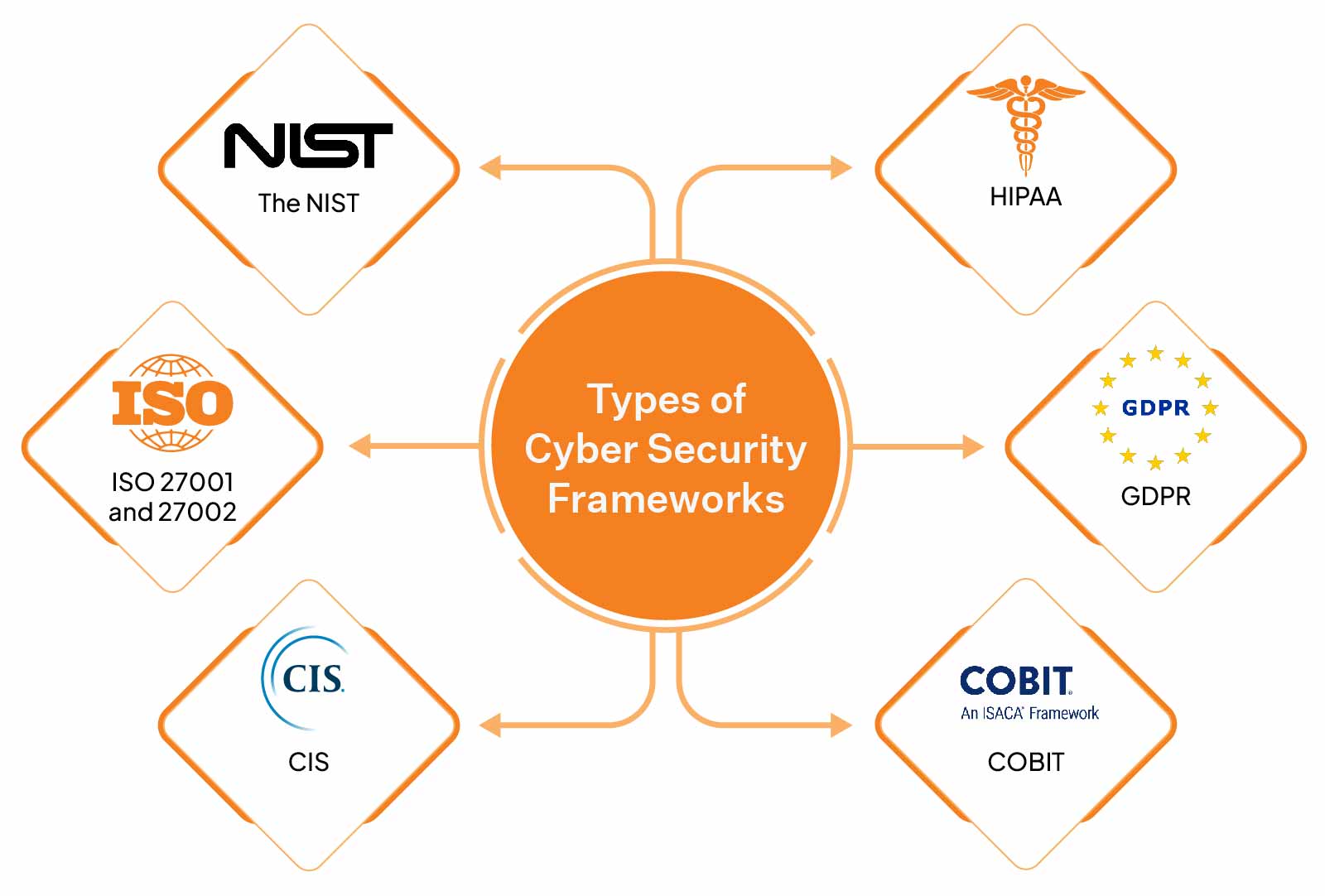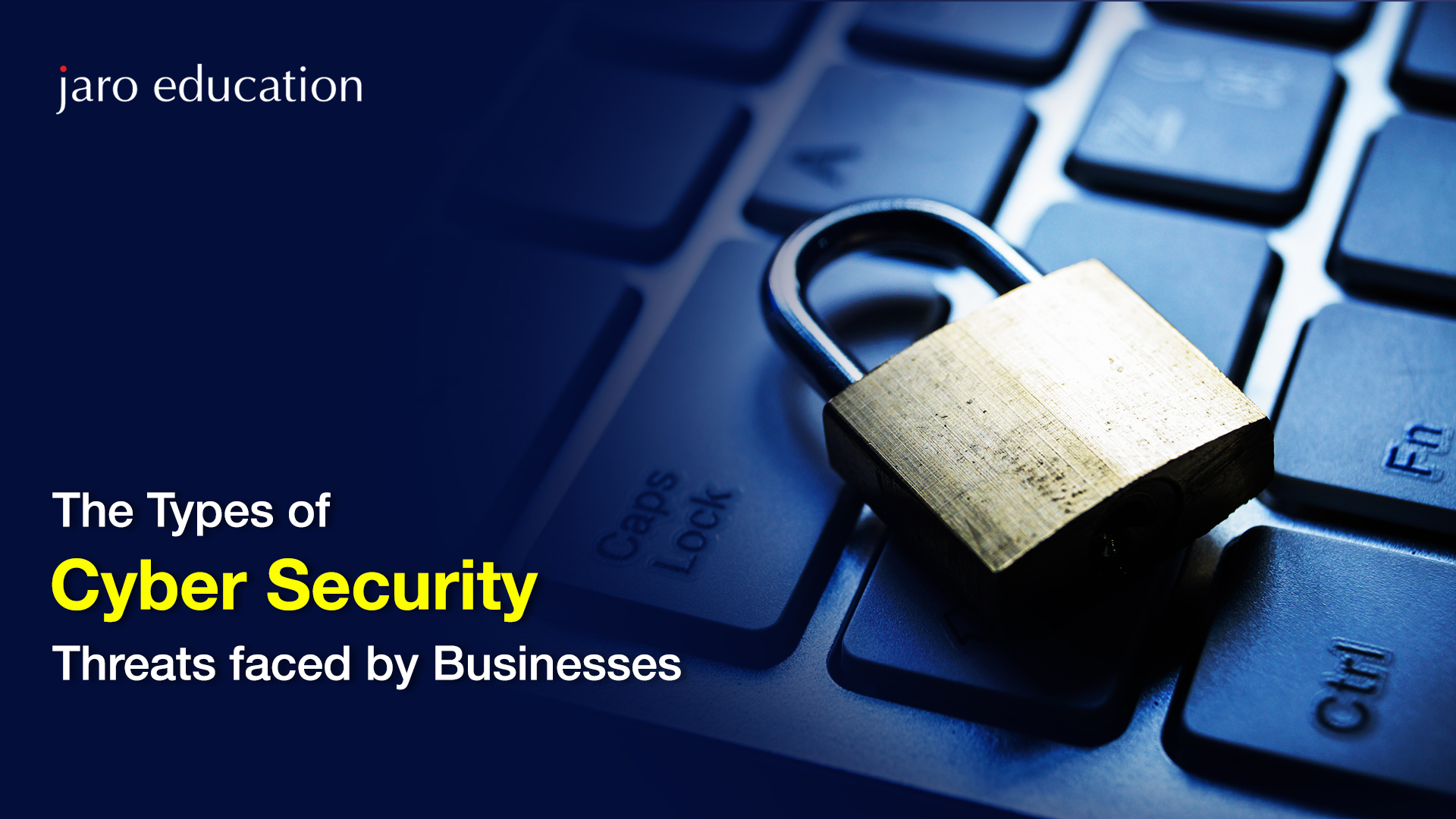
In the rapidly evolving digital landscape, the need for robust cybersecurity measures has become more critical than ever before. With malicious actors constantly devising sophisticated cyberattacks, organisations must prioritise the adoption of effective cybersecurity management practices. Frameworks for cybersecurity provide a disciplined method of monitoring security threats, spotting weaknesses, and boosting overall digital defence. The importance of cybersecurity frameworks is highlighted below:
Delve into the Cybersecurity Frameworks
Cybersecurity frameworks are comprehensive sets of policies, practices, and procedures implemented to establish an effective security posture. These frameworks guide organisations to safeguard their assets from cyber threats by assessing, identifying, and managing potential risks that could lead to data breaches, system outages, or other disruptions.
By evaluating current security practices and identifying gaps in protection, cybersecurity frameworks assist organisations in implementing appropriate safeguards to secure critical assets. These frameworks are essential for developing and maintaining a robust security strategy tailored to an organisation’s specific needs.
Types of Cybersecurity Frameworks
Cybersecurity frameworks are developed based on specific functions and objectives. These frameworks can be broadly classified into three categories:
Table of Contents
- Control Frameworks: Control frameworks in cybersecurity give organisations precise security controls they can use to safeguard their data and information systems. These frameworks provide a series of recommendations that businesses may use to lower their risk of cyberattacks. Examples of control frameworks in cybersecurity include the Payment Card Industry Data Security Standard, which offers a set of protocols for protecting credit card data and transactions, and the Centre for Internet Security (CIS) Controls, which comprises 20 critical security controls.
- Programme Frameworks: One sort of cybersecurity framework that focuses on creating and administering cybersecurity programmes is the programme framework. These frameworks offer recommendations and best practices for creating, executing, and upholding a cybersecurity programme specific to the requirements of an organisation. Risk assessment, policy formulation, training, awareness-raising, incident response planning, and continual evaluation and improvement are among the activities. These frameworks offer a systematic approach to managing cybersecurity that may be modified as the organisation’s requirements evolve over time.
- Risk Frameworks: Organisations employ risk frameworks in cybersecurity as crucial tools for identifying, evaluating, and managing cybersecurity risks. They give organisations a structured method for managing risks, enabling them to identify and rank potential threats, evaluate the likelihood and severity of those threats, and create plans for reducing or managing those risks. Risk frameworks are made to assist businesses in keeping a solid cybersecurity posture and safeguarding their data and systems from online dangers. Risk frameworks are used by organisations to assess and rank potential cybersecurity hazards, to put this idea into simpler terms.
Components of a Cybersecurity Framework
A cybersecurity framework comprises three essential components: the Framework Core, Implementation Tiers, and Profiles.
- Framework Core: The Framework Core serves as a guiding element that complements an organisation’s existing cybersecurity framework and risk management processes. Its primary purpose is to provide direction and reduce vulnerabilities in cybersecurity practices.
- Implementation Tiers: This component aids developers in gaining a better understanding of how to manage cybersecurity risks. They help evaluate the comprehensiveness required for cybersecurity programs and are often used to assess the organisation’s specific hazard needs.
- Profiles: Within an organisation, profiles play a crucial role in identifying and organising opportunities for enhancing cybersecurity. They serve as valuable tools for identifying areas where cybersecurity measures can be strengthened and optimised.
Benefits of Cybersecurity Frameworks
The digital landscape is replete with various threats, ranging from data breaches to ransomware attacks. Cybersecurity frameworks offer a structured and systematic approach to addressing these challenges. Here are some benefits of cybersecurity:
- Risk Mitigation: Cybersecurity frameworks help organisations identify and mitigate potential risks effectively, reducing the likelihood of security incidents.
- Compliance: Many industries and regions have specific regulatory requirements for data protection. Cybersecurity frameworks provide guidance on how to comply with these regulations.
- Enhanced Defence: These frameworks empower organisations to bolster their defence mechanisms by following best practices and established guidelines.
- Incident Response: Frameworks often include incident response plans, which are crucial for minimising the impact of security breaches.
Top 10 Cybersecurity Frameworks in 2023
1. NIST Cybersecurity Framework
The National Institute of Standards and Technology in the United States offers a comprehensive cybersecurity framework. NIST’s framework provides guidelines for organisations to protect, identify, detect, and recover from cyberattacks. Originally created for federal agencies, it applies to virtually any organisation looking to establish a secure digital environment. NIST’s framework encompasses risk management, asset management, identity and access control, incident response planning, and more.
2. ISO 27002 and ISO 27001
The ISO 27001 and ISO 27002 standards are internationally recognised for information security management. ISO 27001 offers a systematic approach to risk assessment, control selection, and implementation, emphasising the establishment of an Information Security Management System (ISMS). ISO 27002 provides detailed security controls, ensuring comprehensive information security management when implemented alongside ISO 27001.

*Sprinto
3. CIS Controls
The Center for Internet Security Control Framework offers 20 controls that cover various security areas, including access control, asset management, and incident response. These controls are divided into three categories: Basic, Foundational, and Organisational, allowing organisations to tailor their security measures to their specific needs.
4. SOC2
The Service Organisation Control (SOC) framework, particularly SOC2, is designed for cloud service providers. It requires organisations to document their internal processes and procedures related to availability, security, processing integrity, privacy, and confidentiality. SOC-compliant documents must include access control measures, data encryption protocols, incident response plans, and evidence of control effectiveness.
5. PCI-DSS
The Payment Card Industry Data Security Standard (PCI-DSS) was developed to protect customer payment card data. It comprises 12 requirements covering access control, network security, and data storage specific to the payment processing industry. PCI-DSS mandates measures such as encryption and tokenization to safeguard customer payment card data.
6. COBIT
The Control Objectives for Information and Related Technology is developed by the Information Systems Audit and Control Association. It offers best practices for governance, risk management, and security. COBIT is divided into five categories: Plan & Organise, Acquire & Implement, Deliver & Support, Monitor and evaluate, and Manage & Assess. It includes detailed data security guidelines, covering areas like access control, authentication, encryption, audit logging, and incident response.
7. HITRUST Common Security Framework
The Health Information Trust Alliance (HITRUST) Common Security Framework (CSF) is tailored for the healthcare industry. It provides the best practices for protecting patient data, including access control, identity and access management, encryption, audit logging, and incident response. HITRUST CSF also includes cybersecurity governance, risk management, and compliance requirements.
8. Cloud Control Matrix
The Cloud Security Alliance’s (CSA) Cloud Control Matrix (CCM) is designed for cloud-based systems and applications. It covers access control, user authentication, encryption, audit logging, and incident response. Similar to HITRUST, the CCM includes guidelines for security governance and risk management, helping organisations meet regulatory standards in cloud environments.
9. CMMC 2.0
The Cybersecurity Maturity Model Certification (CMMC) 2.0 is the latest version of the U.S. Department of Defense’s framework, designed to protect national security information. CMMC 2.0 introduces self-assessment options, prioritises the protection of DoD information, and fosters cooperation between organisations and the DoD. It offers three levels of certification based on data sensitivity, with varying numbers of required practices and assessment intensity.
10. Essential 8 (APAC)
The Essential 8, established by the Australia Cyber Security Centre (ACSC), is the baseline cybersecurity framework for the Asia-Pacific region. It focuses on Microsoft Windows-based networks and comprises eight threat mitigation practices. The Essential 8 Maturity Model adjusts recommendations based on an organisation’s capabilities and potential threats.
Conclusion
Managing risk for an organisation is highly correlated with a strong cyber risk framework. Organisations, particularly those that store a lot of data and safeguard information related to one’s financial records, health, or national security, need a strong cybersecurity framework to look after the personnel data and sensitive pieces of information in light of the rise in cyberattacks caused by advanced technology. However, because each organisation has a unique cybersecurity architecture needed to conduct its programmes, the risk management system may vary.
To gain efficiency in cyber security management, enroll for the PG Certificate in Cyber Security Management and Data Science Programme at IIM Nagpur. Participants who complete this integrated programme will have the knowledge and abilities necessary to succeed as techno-management professionals in cybersecurity. After this course, participants will have a thorough understanding of the cybersecurity frameworks, allowing them to manage vulnerabilities efficiently, develop leadership skills, accommodate new technologies, guarantee compliance, and succeed in this important profession. Get in touch with Jaro Education’s admission experts and learn more about the intake.









